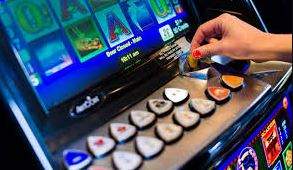New South Wales is pioneering a pilot project testing the implementation of cash-free poker machines.
As a step in Australia's broader strategy against monetary crimes, New South Wales is venturing into cashless poker machines. The concept was introduced last year but hadn't moved forward until now. The trial will commence in August at Wests Newcastle, set to last for 12 weeks.
In the upcoming month, the configuration of 38 gaming machines by Aristocrat Leisure at Wests Newcastle will undergo a transformation. Players won't be able to use cash directly on these devices. Instead, the machines will connect to players' digital wallets through a Bluetooth system, integrated with their bank account and personal information.
Prior to gameplay, participants will need to transfer money from their bank accounts to the gaming device. Around 300 patrons are expected to experience these new conditions during the trial at Wests Newcastle.
On achieving positive outcomes from this experiment, more locations will adopt the cashless gambling system. This innovation is heralded as a vital measure by gambling advocates to curtail money laundering, manage gambling addiction issues, and regulate players' spending behaviors.
The trial is being backed by Aristocrat Leisure, with the approval of companies like IGT and Utopia Gaming, though Aristocrat is often the preferred choice, states the Minister of Hospitality and Racing, Kevin Anderson.
The overarching objective of these trials is to implement systems and technologies that minimize harm and combat money laundering effectively.
Can cashless gambling devices serve as a deterrent to money laundering activities?
Recently, a report by the NSW Crime Commission shed light on the enduring problem of poker machines in facilitating criminal operations. These devices are habitually employed by criminals to launder illicit funds within Australia’s social clubs, bars, and gambling centers.
The document highlighted how criminal groups find Australian pokies exceptionally suitable for laundering due to their simplicity. An amount of $5,000 is loaded into the machine; players place a minimal bet and can withdraw the remaining balance, making it appear clean.
Post this process, a cashier issues a receipt for the remaining balance, which looks legitimate. This strategy is repeated either at the same location or at different establishments.
Receipts make no record of how long a player played or how much they wagered, only what they are owed. Future scrutiny by casinos may focus on examining large, rapid cash-outs.
Back in November 2021, the Sydney Morning Herald chronicled an incident of laundering, where a person loaded $27,000 into a gaming machine and recovered most of it quickly.
As per David Byrne, the chief investigator at the NSW Gaming and Liquor Department, it is estimated that criminals channel about a billion dollars through gaming machines annually.
The introduction of cashless pokies aspires not just to curb but to eliminate laundering activities. Criminals thrive on anonymity to evade detection.
By associating game units with users' identities and bank accounts, these systems dismantle operational secrecy.
Implementing organized strategies forms the bedrock of combating illegal activities.
The move towards cashless pokies is part of a larger initiative to curb criminal exploits. Limiting the amount deposited into a machine could significantly reduce money laundering, suggests Independent NSW MP Justin Field.
Justin Field questions the rationale behind allowing players to input up to $10,000 in cash into machines. By simply lowering the maximum deposits and transitioning to cashless systems, regulatory reforms could make a substantial impact.
In NSW, pokies have a steep $10,000 cash limit, whereas states like Victoria and the Northern Territory cap it at $1,000, and it falls to $100 in Queensland and South Australia.
While reform advocates support the shift to cashless gaming, they see it as a minor fix amid broader challenges. The state of New South Wales hosts 95,000 machines, with only 38 being part of the Wests Newcastle trial. While their oversight is less stringent outside casinos, there’s a significant presence beyond casino premises.
Despite comprising just 0.3% of the global population, Australia harbors 20% of the planet's pokie machines.
